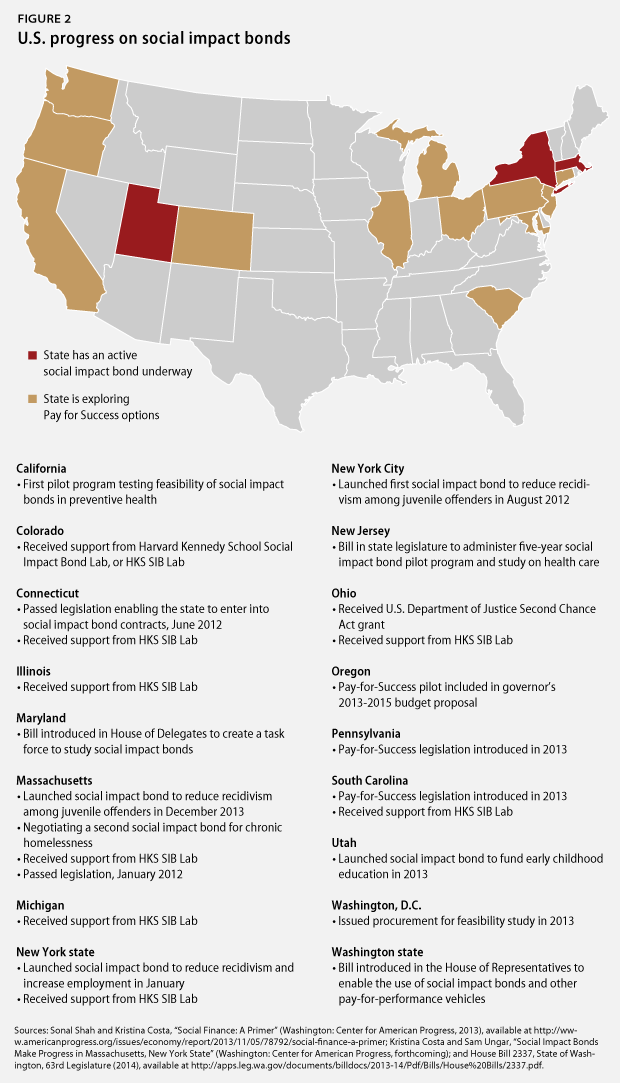What is a social impact bond?
A social impact bond, or SIB, is an innovative financial tool that enables government agencies to pay for programs that deliver results. In a SIB agreement, the government sets a specific, measurable outcome that it wants achieved in a population and promises to pay an external organization—sometimes called an intermediary—if and only if the organization accomplishes the outcome. SIBs are one example of what the Obama administration calls “Pay for Success” financing.
Investors provide the working capital for the external organization to hire and manage service providers. A third-party evaluator determines whether the outcome has been achieved. If the agreement succeeds, the government releases an agreed-upon sum of money to the external organization, which then repays its investors with a return for taking on the upfront risk. If the agreement fails, the government is not on the hook, and the investors do not get repaid with public funds.
SIBs are a potentially powerful tool for policymakers to use resources more efficiently and improve services for disadvantaged populations, even in the face of shrinking public budgets.
What are the best policy areas for social impact bonds?
At this early stage, SIBs are most appropriate for areas in which:
- Outcomes can be clearly defined and historical data are available
- Preventive interventions exist that cost less to administer than remedial services
- Some interventions with high levels of evidence already exist
- Political will for traditional direct funding can be difficult to sustain
Examples of such areas include recidivism, homelessness, workforce development, preventive health care, and early childhood and home-visiting programs, among others.
Where have social impact bonds been used in the United States?

Kristina Costa is a Speechwriter and Policy Analyst in economic policy at the Center for American Progress.